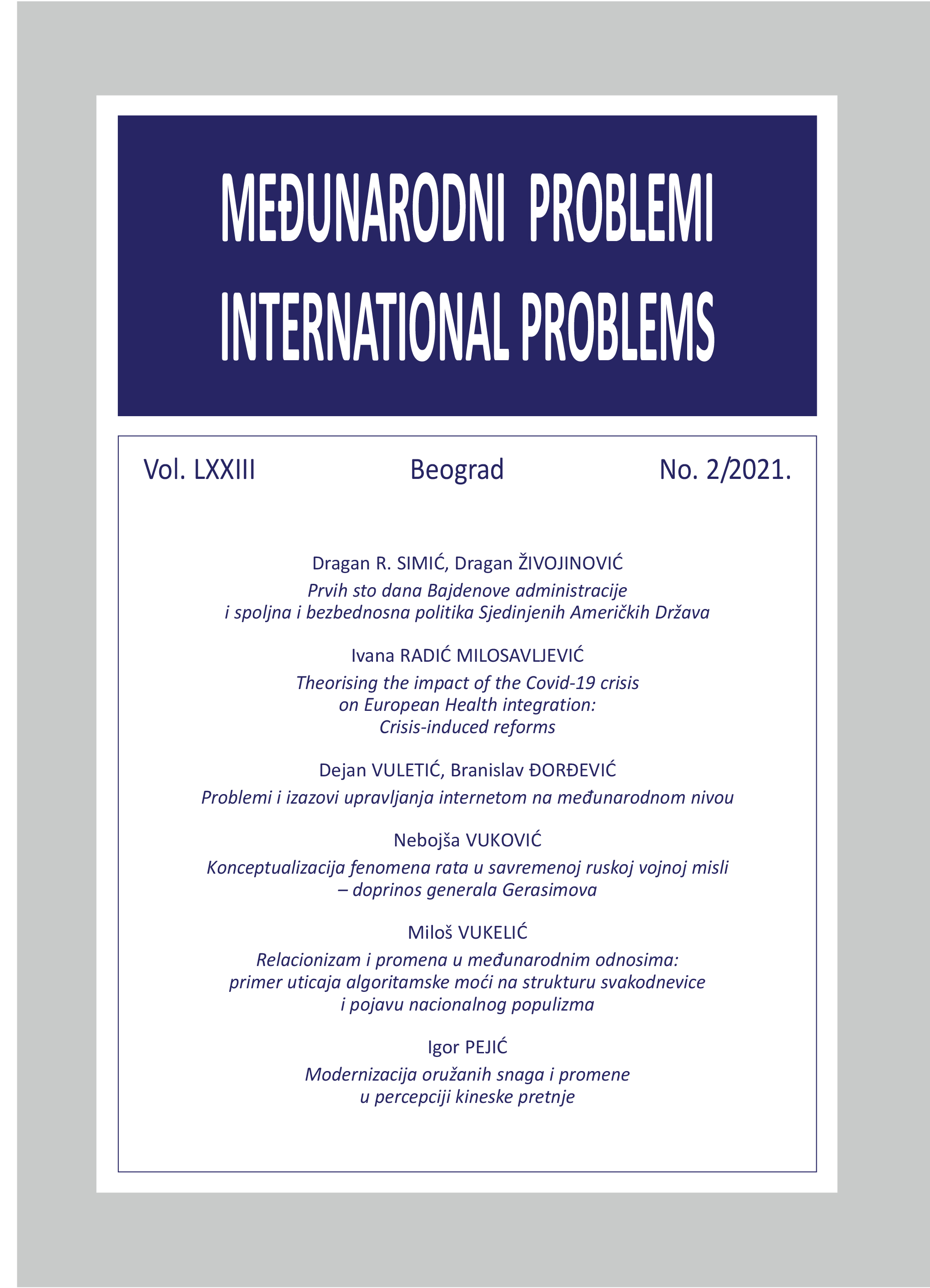Relacionizam i promena u međunarodnim odnosima: Primer uticaja algoritamske moći na strukturu svakodnevice i pojavu nacionalnog populizma
RELATIONALISM AND CHANGES IN INTERNATIONAL RELATIONS: AN EXAMPLE OF THE INFLUENCE OF ALGORITHMIC POWER ON THE STRUCTURE OF EVERYDAY LIFE AND THE EMERGENCE OF NATIONAL POPULISM
Author(s): Miloš VukelićSubject(s): Politics / Political Sciences
Published by: Институт за међународну политику и привреду
Keywords: relationalism; international relations; everyday nationalism; algorithmic politics; algorithmic power; national populism; liberal-democratic paradox
Summary/Abstract: The paper points out that there is a way to comprehend the phenomenon of national populism from the perspective of the international relations discipline. Additionally, to provide an interpretation of why national populism occurred in the United States and the European Union after 2014. The emergence of national populism in the United States and the European Union countries has endangered the survival of the liberal-democratic paradox. There are numerous scientific explanations attempting to explain how this phenomenon came about. In this paper, I will reduce these explanations to cultural, economic, and political arguments and arguments about human nature and the long-term logic of modernity. The author argues that these explanations have a research gap since there is no answer to why national populism occurred in 2014 simultaneously in the EU and the United States. As a set of tools in the international relations discipline, the author finds that relationalism provides us with lenses that can open up a space to claim that the simultaneous change, embodied in the emergence of national populism, occurred due to a change in the structure of the everyday. Therefore, the paper consists of an interdisciplinary literature review of relationalism in international relations, everyday nationalism, the influence of algorithmic power and algorithmic politics on the structure of human internet presence, and the existing works that indicate the source of national populism’s emergence. By proving the claims, the author points out the importance of studying processes in order to understand the events and changes in international relations that have occurred since 2014.
Journal: Међународни проблеми
- Issue Year: LXXIII/2021
- Issue No: 2
- Page Range: 284-309
- Page Count: 26
- Language: Serbian

